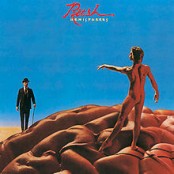In this post about zero-sum validation games in social media, Freddie deBoer expresses his frustration with people's refusal to let other people just like what they like.
Even our purely subjective aesthetic choices are not allowed to be our own anymore. If tastes are subjective and people are allowed to make whatever choices they want in the media they consume, people can't use those tastes to justify their self-conception as arty or hip or whatever. So what you get is a lot of people heaping derision on those who make different aesthetic choices. Nobody can leave other people alone anymore.
Much of this antagonism is inescapable, given how status and class work in an ostensibly caste-free society. Our aesthetic choices have never been "allowed to be" our own. You might say that possibility has always been a utopian aspiration, a rallying cry for liberal individualism. Autonomous taste formation has always been a myth, a means for shaming people for their habitus. (What you are seen to "naturally" like becomes a social destiny.)
With the shift to an aspirational consumer culture (necessitated by grow-at-all-costs capitalism) and its promises of social fluidity, the boundaries of social caste are maintained less through tradition and bloodlines and such but through appropriately staged taste displays, as Veblen and Bourdieu, etc., have argued. Status insecurity drives the engine of fashion, and the value of positional goods, while draping an ideological veil over the conservation of power, made to seem a matter of clever consumption rather than capital ownership. A nominal openness in the arena of taste (we all have freedom of choice and opportunities to display our consumerist ingenuity) and the existence of occasional taste-lottery winners invite us to blame ourselves for failures to climb the social ranks, even though the game is largely rigged in advance. Anyone can express their difference, but not everyone (or perhaps not anyone) can dictate how it will be understood and judged. The result is the milieu of resentment DeBoer describes in the post, and in this essay.
Stemming resentment is not simply a matter of not judging others. The problem is the network structure of sociality, not necessarily personal invidiousness. Because anything expressed through social media is recorded and circulated in a network, redeployable for all sorts of decontextualized purposes, it's also automatically a judgment whether we intend it to be or not. If we mean to stop judging other people for what they like, we would need to stop ourselves from broadcasting anything about what we like. Social media situates personal expression in an arena of status competition far more than, say, ephemeral conversations do. Social media provide material support to the idea that consumption is first and foremost a performance, not about what enjoyment you get but what envy or interest you inspire in others.
Pettiness about other people's consumer choices was certainly prevalent before the Internet, but the ceaseless competition for attention enabled by social media has made it worse. The omnipresent resentment stems from the not altogether mistaken idea, incubated on social media, that the hype for what other people like affects the distinctive value of what you like. Social media drives home the notion that no "need" is not social at its root — no need is private and intrinsic but is always inflected by social imperatives, is an effort to fit in or gain status. Baudrillard delighted in making this point in "The Ideological Genesis of Needs." He claims, "it is impossible to isolate an abstract 'natural' stage of poverty or to determine absolutely 'what men need to survive'. It may please one fellow to lose everything at poker and leave his family to starve to death." This leads him to ask: "Is loss of status — or social nonexistence — any less upsetting than hunger?" Social media are premised on the answer to that question being self-evidently "no."
The structure of online social networks ensure that nobody is leaving anybody alone anymore, capturing every social action and turning it into a discrete, quantifiable moment of value creation. The value is created through the sorting gestures made by the others in the network — liking or ignoring a shared thing, curating it, assimilating it into something else, forwarding it on, approving or disapproving. Because these judgments are internal to the network and themselves constitute a concrete chunk of digital data, they become a marketable commodity for the networks' owners as well as a source of market information affect the value of other commodities, the relative demand for them. And as we refine the ability to measure our online influence, our tastemaking will become both more zero-sum and more pertinent to our lives. Our opportunities in life may be shaped by Klout scores, since that data can be readily used for discriminatory purposes to shape the sorts of retail environments we pass through and where we exercise most of our "freedom to choose" and "become who we are" through consumerism.
Under incipient conditions of "frictionless sharing" where we are encouraged (or eventually forced) to feed every consumption choice into a network, no choice is innocent or separate from the value it might create by circulating within that network. No subjective opinion has any meaning in the abstract; once we recognize any preference as a separate thing from the experience that formed it, once it becomes reflexive, we are tempted to deploy that preference as a signifier. Preferences can be communicated, but the experiences that prompted them aren't — they aren't transferable and have no social value.
So it becomes more useful to have preferences than experiences, to have preferences at the expense of experiences, and to have all "experiences" take the form of social sparring over preferences. This is a game that can be won — my trip to, I don't know, Watkins Glen can beat yours if my pictures and comments about it get more views. My love of the band Rush becomes something with theoretically measurable impact — it's not about what I hear when I listen but what others think about the fact that I've chosen to claim I've heard something by Rush. I am never not aware of the audience I can have for my listening. Hemispheres is my jam.

In this process, the value of all personal experiences, once turned into the negotiable currency of opinions, escapes our control. As deBoer writes, "the more time people spend justifying and validating themselves, the bigger gulf they feel between the self-concept they try to project and how they actually feel about themselves." That's because social media prompts us to put virtually everything that could anchor self-esteem into circulation, onto the attention market. Social media works to make everything we do reflexive.
The interior gulf between the intention and reception of the performed self that deBoer describes is also a measure of the inherent volatility of all status signifiers — made more volatile in the endless churn of social media. We are less sure than ever of whether what we think we are projecting will secure the distinction we expect. But that doesn't mean we can simply stop playing. (It seems to mean that we play harder, project more.) DeBoer basically goes on to argue that we should stop regarding "validation" as an inherent need, an idea that Baudrillard could apparently get behind. But that's tantamount to arguing we should opt out of ideology through some voluntary effort of will. We aren't really afforded the wherewithal to refuse to participate in games of social status, which would only cease to trouble us if it social class were still overtly dictated to us and rendered immutable by custom and brute force of law. Absent that kind of caste helplessness, there seems to be no incentive for protecting certain of our experiences from the attention market. Why not try to take advantage of the chances for social mobility with whatever resources technology affords us? Even if we could stabilize some internal sense of self by not putting our treasured subjective opinions up for external judgment, that stabilization would come at the price of self-ostracism and status loss that would redraw our horizon of opportunity.
Rather than reject the possibility of validation, one might instead seek personal validation through the effort to validate others, at least at an interpersonal level, if not at the level of status. We can't necessarily "like" one another into the upper middle classes or "like" our way to the dissolution of class altogether (especially if we consider it the creation of cultural capital and not its destruction), but we can circumvent some of the resentment by withdrawing more of our social behavior from the circuits of capital, refusing to mediate our validation gestures, and rejecting the elision of validation with capitalist value creation. Even if it were possible in our society of ubiquitous surveillance to be social without it being mediated, however, the effort it would take would be liable to stoke a different kind of resentment. No one wants to watch other people turn their opinions into an effective kind of capital while you struggle to withhold your own. All the personal broadcasting going on makes it seem as though it is besides the point to have an opinion that's not shared; it's almost taken for granted that we don't have tastes until we force them on others. If you don't know I like Rush, then what's the point of liking Rush? How do I even know if I like them? I haven't made the feeling real until I announce it.
I feel like this post is spinning in circles a bit. The point I am trying to make is that it is much more difficult than it would seem to simply opt out of conspicuous consumption when everything we do is already presumed conspicuous, by ourselves and everyone else in smartphone society. In theory, nothing escapes mediation; even our active efforts to avoid broadcasting ourselves and our opinions and our tastes can be thwarted by well-meaning friends who share in our name. And we can't will the kind of social context that would make cultural tastes and mediated "sharing" other than what it is under capitalism — a ploy for distinction.
